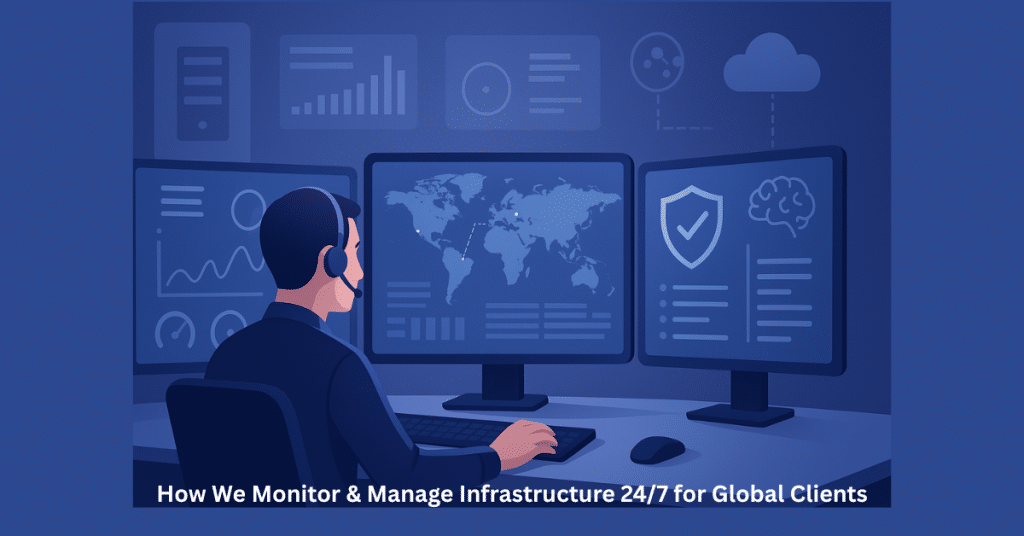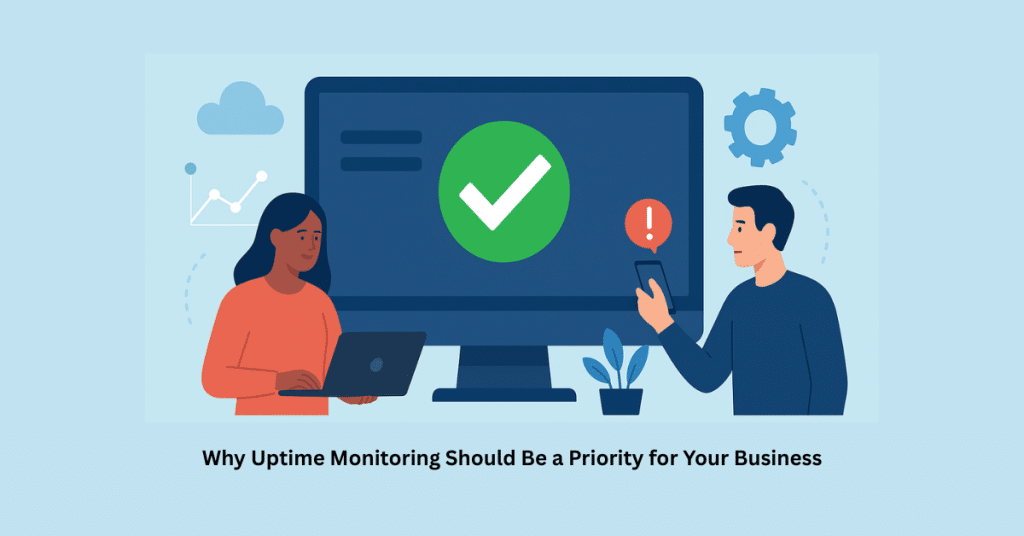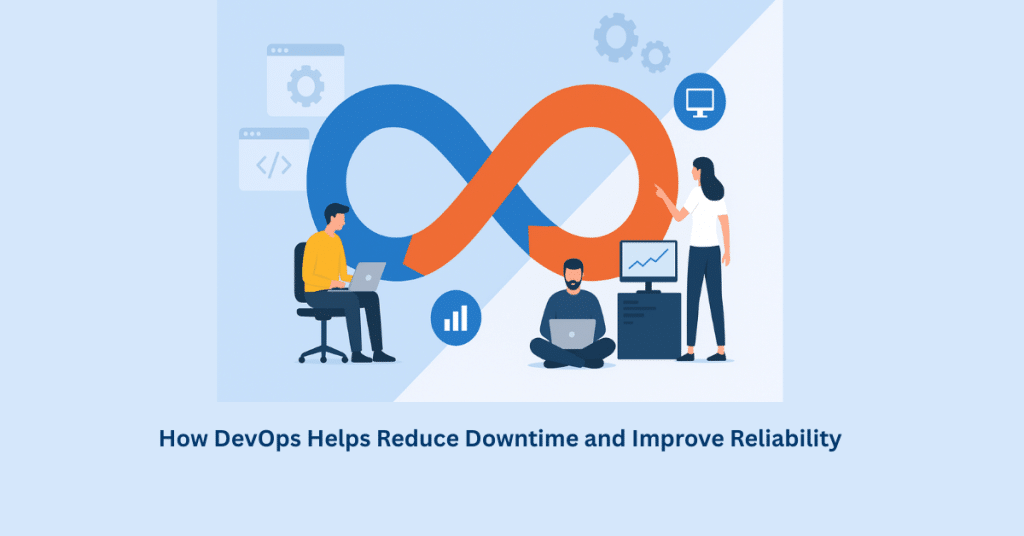Fintech firms are transforming the finance sector with digital native products and customer-oriented services. To remain competitive, they require scalable technology, secure operation, and rapid innovation. This blog delves into how Cloud & DevOps Solutions for Fintech Companies can enable them to gain agility, compliance, and efficiency while establishing trust in a competitive market.
Introduction
The banking sector has never been more competitive. Fintech firms and incumbent companies alike are competing furiously to provide faster payments, touchless mobile apps, customized investment products, and bulletproof security. Clients anticipate instant services with zero downtime, and regulators insist on stringent compliance.
To address these demands, several fintechs are implementing Cloud & DevOps Solutions for Fintech Companies. Cloud offers scalability, robustness, and cost savings, whereas DevOps practices enable continuous delivery, quicker releases, and excellent collaboration between development and operations. In combination, they are a dynamic duo that can be the difference-maker for fintechs and enable them to succeed.
Why Fintech Needs Cloud and DevOps
Fintech businesses operate in a special ecosystem where agility, compliance, and customer trust are indistinguishable. Fintechs, compared to legacy financial institutions, typically have smaller teams and skinnier budgets, so effective technology uptake is even more essential.
The following are some of the main reasons that fintechs are adopting cloud and DevOps:
- Speed to market – Developing features rapidly provides fintechs with competitive advantage.
- Security and compliance – Highly sensitive financial information must be given best-in-class protection and regulation adherence such as PCI DSS, GDPR, and country-specific banking regulations.
- Scalability – Electronic transactions spike during some periods (e.g., payday, holiday seasons, stock market bubbles). The cloud can scale infrastructure with ease.
- Innovation – Cloud-native services such as AI/ML, blockchain, and real-time analytics enable fintechs to test and innovate.
- Reliability – Down time equals lost business and customer confidence. Redundancy is built in by cloud providers, and production flaws are minimized with DevOps procedures.
Major advantages of Cloud for Fintech Businesses
1. Economic Efficient:
Rather than massive capital spending on physical hardware, fintech businesses only pay for what is consumed in the cloud. This gives them budgetary efficiency with faster growth.
2. Better Security:
Cloud providers such as AWS, Azure, and Google Cloud provide advanced security features that include encryption, firewalls, identity management, and compliance-ready environments. These help ease the workload for fintech teams while providing robust protection.
3. Global Reach:
Most fintech apps have a global customer base. Cloud infrastructure enables them to deploy applications nearer to customers all over the world, cutting latency and enhancing performance.
4. High Availability:
With multi-region deployments and auto failover, the cloud keeps core fintech applications up and running—even in the event of disaster or outages.
The DevOps Place in Fintech
While cloud offers the foundation, DevOps is the fuel that propels relentless improvement. In fintech, with customers having lofty expectations and stringent regulations, DevOps ensures speed balanced with safety.
Faster Releases
DevOps pipelines test, integrate, and deploy automatically. This enables fintech companies to deploy new features rapidly without sacrificing quality.
Improved Collaboration
Developers and operations teams used to operate independently. DevOps promotes shared accountability, eliminating friction and fostering a culture of continuous improvement.
Enhanced Quality
Automated monitoring, testing, and feedback loops minimize bugs and failures. In a fintech setting, this means fewer interruptions to customers and increased trust.
Regulatory Compliance
Infrastructure as Code (IaC) and automated auditing make it easy for fintechs to document processes, enforce security standards, and prove compliance.
How Cloud & DevOps Collaborate in Fintech
Together, cloud and DevOps provide a frictionless space for innovation and expansion. Here’s how they go hand-in-hand:
- Cloud-native development: Developers containerize (e.g., Docker, Kubernetes) portable, scalable apps. DevOps provides seamless CI/CD pipelines for apps.
- Automated scaling: Cloud resources scale up or down according to demand. DevOps monitoring tools keep performance in check during high demand.
- Disaster recovery: Cloud replication and backups guarantee resiliency, with DevOps scripts used to automate recovery operations.
- Improved security posture: Cloud offers solid base security, while DevOps practices such as continuous monitoring and patching add to defenses.
Combined, they form a resilient, fast, and compliant environment specifically suited for the fintech sector’s particular challenges.
Common Fintech Use Cases
Digital Payment Platforms
Large volumes of transactions, fraud detection, and zero-downtime needs make cloud and DevOps essential for payment businesses.
Neobanks
App-only banks depend on swift feature releases, optimization of user experience, and good compliance—all facilitated by DevOps and cloud infrastructure.
Lending Platforms
Risk analysis powered by AI and scalable loan processing infrastructure are highly strategic uses of the flexibility provided by cloud platforms.
WealthTech & Investment Apps
Real-time analytics, personal recommendations, and market trend analysis call for cloud-native services, complemented with DevOps automation.
Challenges and How to Overcome Them
Even though the advantages are evident, fintechs tend to be challenged when embracing Cloud & DevOps Solutions for Fintech Companies.
Data security issues: Although cloud providers have robust security, fintechs also have to have strict internal policy and encryption measures in place.
Compliance complexity: Country-specific regulations are different. Fintechs have to create systems with compliance as a fundamental consideration.
Skill gaps: Every fintech team cannot be cloud or DevOps skilled. Collaborating with veteran consultants helps fill in the gaps.
Cultural shift: Going to DevOps is not just about tools—it is a mindset shift that requires teams. Top leadership and training are essential.
Best Practices for Adoption
- Select the appropriate cloud provider – Compare providers based on compliance certifications, geographical reach, and fintech-specific offerings.
- Begin small, scale quickly – Start with a pilot project prior to relocating mission-critical systems.
- Automate all – From code deployment to compliance verification, automation minimizes errors and accelerates delivery.
- Monitor continually – Employ APM (Application Performance Monitoring) and log analysis software to ensure visibility.
- Incorporate security into pipelines – Implement DevSecOps methodologies where security is built in at all points of development.
- Invest in training – Equip teams with skills in latest cloud and DevOps tools.
Future Trends
The future will only make the case for cloud and DevOps even stronger:
- AI-powered fraud detection will demand scalable, data-heavy environments.
- Blockchain-based solutions will be powered by cloud-native infrastructure.
- Serverless computing will enable fintechs to develop highly efficient, event-driven apps.
- Zero-trust security frameworks will become the norm, integrating cloud strengths with DevSecOps methodologies.
Fintech firms embracing the trends early will establish themselves as thought leaders.
Conclusion
The fintech industry lives and breathes on agility, trust, and customer happiness. With Cloud & DevOps Solutions for Fintech Companies, companies can drive innovation at speed, meet compliance, enhance security, and scale with ease.
The road to success is to implement the right technologies, implement a culture of collaboration, and build security into each step along the way. Whether you’re a startup creating a digital payments application or a well-established company expanding your services, cloud and DevOps give you the tools and frameworks you’ll need to remain competitive.
In a rapidly changing world of finance, those that respond will not only stay alive—they’ll thrive.



